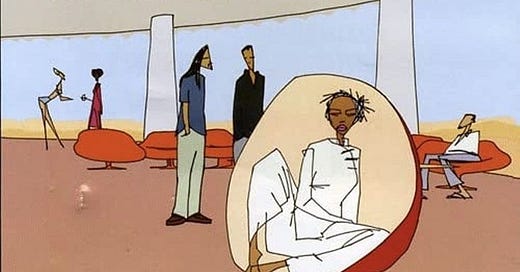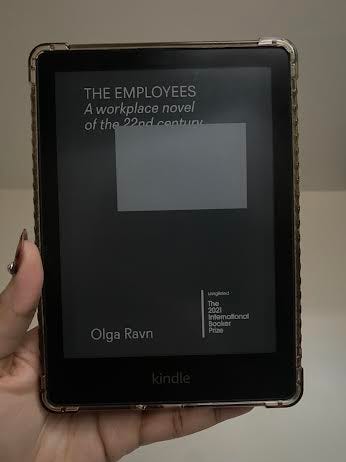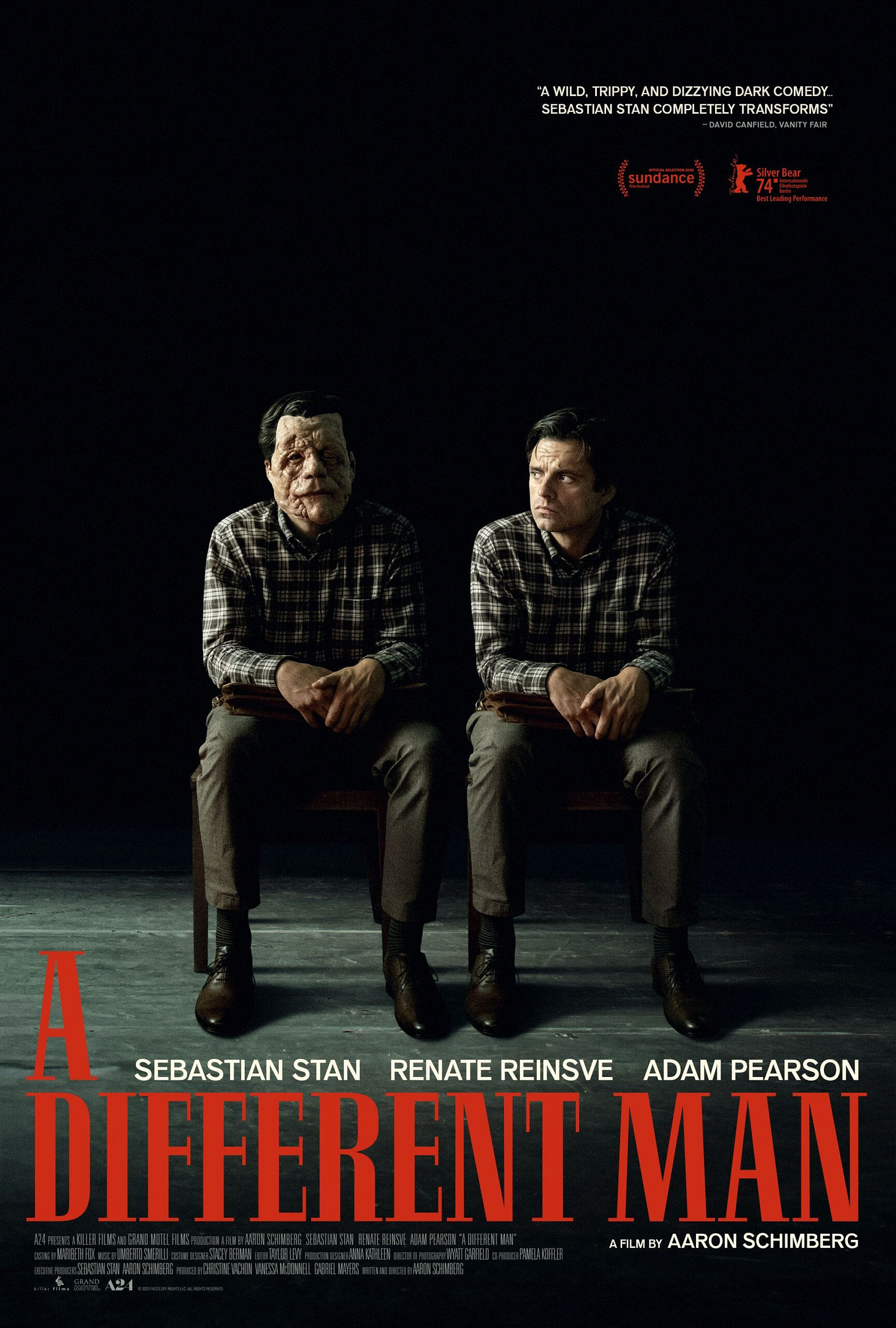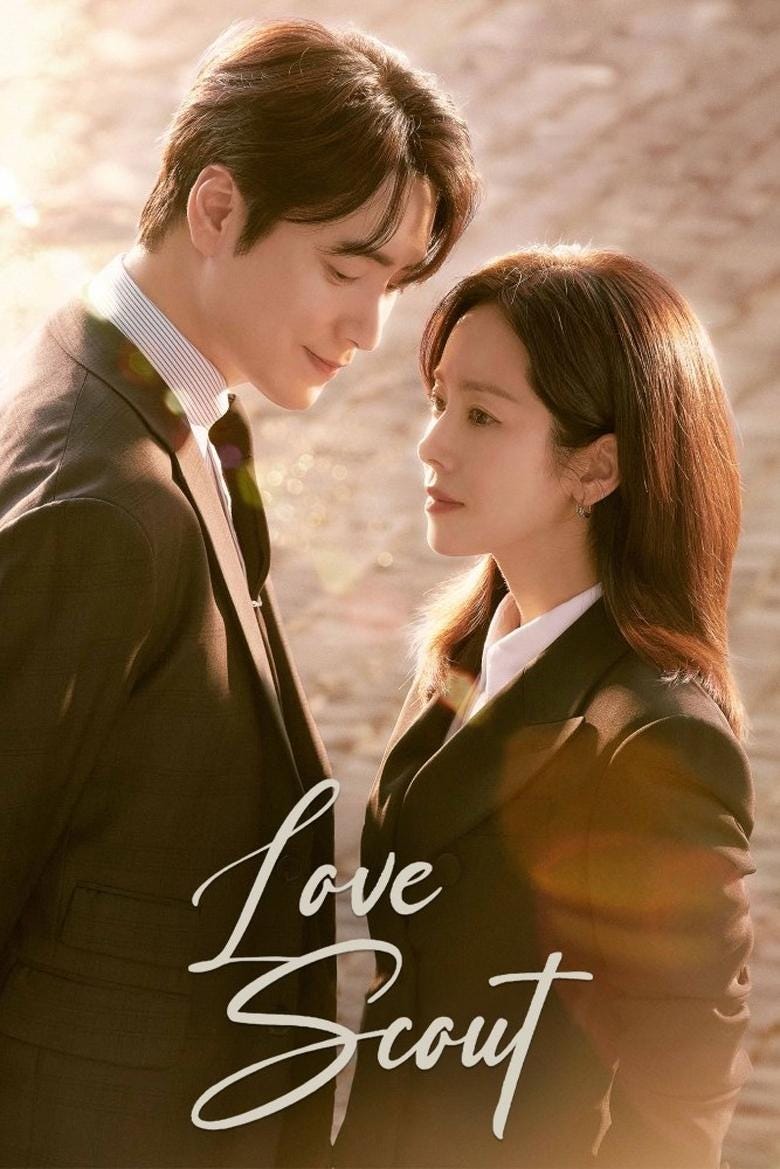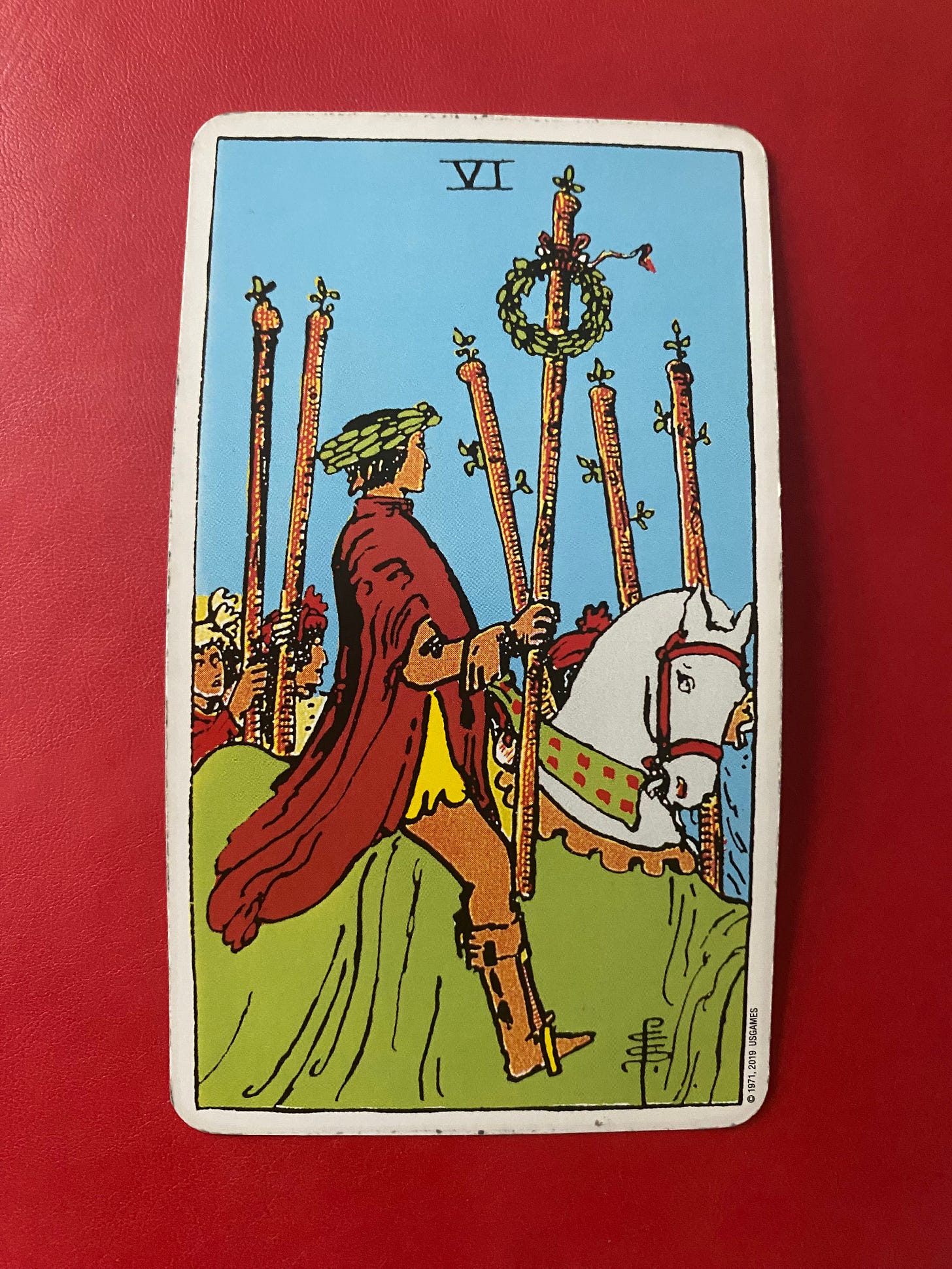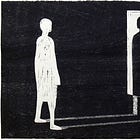four things friday (vol 1)
four things of the week: a book, a movie, a kdrama and a tarot card.
Happy New Year! Yes, I know we’re already a week into it — how did that happen so fast? Anyway, here’s a new segment (maybe?) that I’m hoping to stick with this year. Every week, I’ll pop into your inbox with a four-item list of things I’ve enjoyed or endured over the past week. Sometimes it’ll be recommendations or miniature reviews; other times, it’ll just be my random musings. Enjoy!
1. THE BOOK — The Employees (2018) by Olga Ravn, Martin Aitken (translator)
Genre: Literary Fiction. Science Fiction. Translated Fiction (Danish to English).
Pages: 136
Aboard the Six-Thousand Ship, human and humanoid employees coexist and work alongside each other toward a shared, yet unclear, objective. However, a recent incident has greatly disrupted their productivity. To uncover what transpired and find ways to boost the team’s efficiency, the human resources committee requests testimonies from the crew about the situation on board. This book is a collection of their reports.
This petite, peculiar book was the perfect choice for my first read of the year! Normally, if you handed me a standard, run-of-the-mill science fiction novel, my eyes would glaze over. However, this genre-defying book gripped me from page one. While it certainly includes clear science fiction elements — such as its set aboard a spaceship and its cast consists of humans and humanoids — the story’s structure truly sets it apart. By offering up the story via a collection of testimonies and reports from multiple perspectives, Raven weaves a non-linear, fragmented narrative which tease the world to you rather than overwhelming you with heavy-handed exposition.
In the same place that she feels this longing for Earth inside her, I feel a similar longing to be human, as if somehow I used to be, but then lost the ability. I know I’m only humanoid and that it’s not the same. But I look like a human, and feel the way humans do. I consist of the same parts. Perhaps all that’s needed is for you to change my status in your documents? Is it a question of name? Could I be a human if you called me so?
— The Employees (2018)
I particularly appreciated how every report in the book is anonymous. Early on in the book, it’s difficult to determine whether you’re reading the testimony of a human employee or a humanoid. It’s up to you to pick up on the clues, thought processes, or speech patterns; you’re the one who must makeassumptions about the speaker’s identity and you have to make them quickly since each report ranges from a mere sentence to no more than three pages in length. However, as the story unfolds and tensions between humans and humanoids intensify, the divide among the crew becomes increasingly stark and unsettling.
Beyond examining the conflict between humans and machines, the novel also delves into the relationship between employees (both human and otherwise) and the separate entity of corporate management. As tensions rise on the ship and danger looms, the human resources committee remains cold, detached, and focused solely on restoring disrupted workflow. In fewer than two hundred pages, Ravn skillfully explores themes of humanity, the growing reliance on artificial intelligence, and the dehumanizing nature of workplace culture. The corporate machine is portrayed as being even less empathetic than the robots it employs.
If you do give this book a read, I definitely suggest you head over to this article to read a little more about the art exhibit in Copenhagen that inspired Olga to write this book in the first place. Isn’t it beautiful how art begets more art?
2. THE MOVIE — A Different Man (2024) dir Aaron Schimberg
Edward Lemuel has lived his whole life with a severe facial disfigurement. Tired of enduring the challenges that come with his appearance, he agrees to undergo a risky procedure offered by a shady company that promises to transform him completely. To his surprise, the operation is a success and Edward decides to embrace his new face by leaving Edward behind and adopting the name of “Guy Moratz.”
However, he soon discovers that his neighbor, Ingrid, a playwright, has written a play inspired by his former self—Edward. Guy quickly becomes obsessed with securing the leading role in the play that portrays the man he once was. But the question remains: does having a new face truly make him a different man?
Every moment I spent watching this, I couldn’t help but think: wow, this is like The Substance, but… better. While I felt the former fell short in terms of character development beyond the initial obsession with beauty, and didn’t fully explore the idea that Elisabeth and Sue are supposed to be the same person, A Different Man takes a deeper dive into the complexities of self-acceptance. It shows that being "beautiful" is not enough, because insecurities and trauma caused by how others treat you run far deeper. Schimberg allows you to spend enough time with Edward and Guy that, right after the transformative procedure, they feel like two distinct people. Yet, as the story progresses, their identities start to blur, reminding you that they are, in fact, the same man. Watching Edward’s insecurities seep into Guy’s life, despite his physical transformation, underscores the idea that a person’s sense of identity is not defined by their appearance.
3. THE KDRAMA — Love Scout (2025)
Kang Jiyun is the CEO of an executive search firm, specializing in helping businesses find and hire top talent for their open positions. While she excels at her job, she’s pretty much hopeless at everything else. Her office is a mess, and she struggles with basic self-care — eating on time, getting enough sleep, and maintaining her overall well-being.
After failing to secure a crucial hire for a client, Jiyun’s ability to manage both her personal health and her company’s finances takes a serious hit. Enter Yoo Eunho, her new, highly capable secretary. With his background in office work and his experience as a single father, Eunho is a master of managing chaos. He’s the perfect addition to the team. There’s just one problem: Jiyun can’t stand him.
At the time of writing this, only two episodes of the show have been released, but with each episode running about an hour long, I still binged them back-to-back without a break. Safe to say, it’s already hooked me. This charming romantic comedy features a classic rivals-to-lovers storyline, a fiercely ambitious female lead thriving in her career, and a male lead whose love language are acts of service—like cooking meals, attaching silicone edge guards to sharp tables because Jihyun is clumsy, and fixing the office door to swing both ways since Jihyun always forgets it’s a pull door, not a push. Oh, and did I mention he’s also the single father to the most adorable little girl? That’s serious catnip for me.
4. THE TAROT CARD — Six of Wands
Since December 30th, I've been pulling this card every single day — yes, every day, no matter how many times or ways I shuffle my deck. Not everyone is into tarot; in fact, I've met people who have a borderline violent disdain for it. But this card keeps showing up, and there's a message in it that I've been forced to internalize. It's a message I think anyone creating on the internet will benefit from hearing when dealing with insecurities surrounding the reach of their work.
At its core, this card represents success and public recognition, but only after putting in the necessary hard work. In the image, the central figure is a man sitting astride a horse, holding a wand adorned with a wreath. This man symbolizes you, me, or all of us — people who are sharing our work with the world. Since this card belongs to the suit of wands, it speaks to themes of passion, ambition, and inner creative energy. The wreath symbolizes enduring love, and in my opinion, the combination of the wand and wreath suggests that we should continue to publicly express our unwavering love for our creative pursuits, regardless of the response we receive. I’ve written about this before and I’m definitely not the first person on this website to preach the sentiment, but I’m realising that this is a lesson that must be learned, relearned and learned again. You can’t get any recognition for work that you’re too chicken to put out!
In the background, there is a group of people also holding their own wands as though in celebration. Although they hold wands of their own, their wands differ from the main figure’s — there are buds of greenery on their wands, but their love doesn’t feel as enduring or constant as the circular wreath on the front figure’s wand. What does that mean? Probably a lot of things, but how I interpret it is this: people will love and celebrate your work, but that moment of public recognition may not last forever. Does that suck? Of course it does. But I truly believe this card is reminding me, you, us that it doesn’t really matter. What matters is you, sitting proudly on that horse, continuing your journey and sharing your work, regardless of whether others are following along in the background. When you celebrate, you’ll likely do so with others, but at the end of the day, the main characters are always you, your work, and the personal pride you take in it. All creativity is ultimately a personal relationship with endurance.
What have you enjoyed this week? What have you endured? Let me know! Look after yourself, and I’ll see you later!


